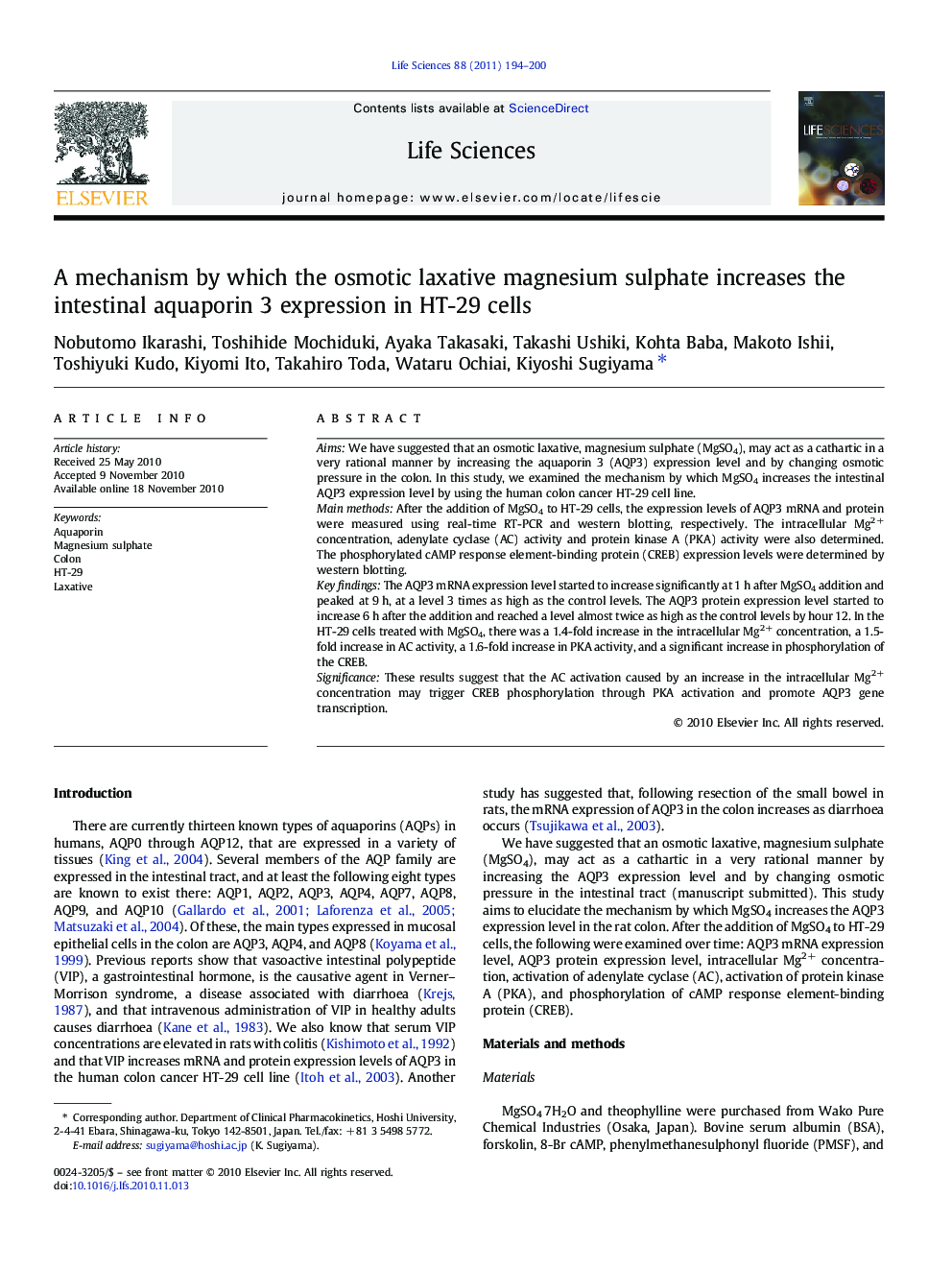| کد مقاله | کد نشریه | سال انتشار | مقاله انگلیسی | نسخه تمام متن |
|---|---|---|---|---|
| 2551925 | 1560686 | 2011 | 7 صفحه PDF | دانلود رایگان |

AimsWe have suggested that an osmotic laxative, magnesium sulphate (MgSO4), may act as a cathartic in a very rational manner by increasing the aquaporin 3 (AQP3) expression level and by changing osmotic pressure in the colon. In this study, we examined the mechanism by which MgSO4 increases the intestinal AQP3 expression level by using the human colon cancer HT-29 cell line.Main methodsAfter the addition of MgSO4 to HT-29 cells, the expression levels of AQP3 mRNA and protein were measured using real-time RT-PCR and western blotting, respectively. The intracellular Mg2+ concentration, adenylate cyclase (AC) activity and protein kinase A (PKA) activity were also determined. The phosphorylated cAMP response element-binding protein (CREB) expression levels were determined by western blotting.Key findingsThe AQP3 mRNA expression level started to increase significantly at 1 h after MgSO4 addition and peaked at 9 h, at a level 3 times as high as the control levels. The AQP3 protein expression level started to increase 6 h after the addition and reached a level almost twice as high as the control levels by hour 12. In the HT-29 cells treated with MgSO4, there was a 1.4-fold increase in the intracellular Mg2+ concentration, a 1.5-fold increase in AC activity, a 1.6-fold increase in PKA activity, and a significant increase in phosphorylation of the CREB.SignificanceThese results suggest that the AC activation caused by an increase in the intracellular Mg2+ concentration may trigger CREB phosphorylation through PKA activation and promote AQP3 gene transcription.
Journal: Life Sciences - Volume 88, Issues 3–4, 17 January 2011, Pages 194–200